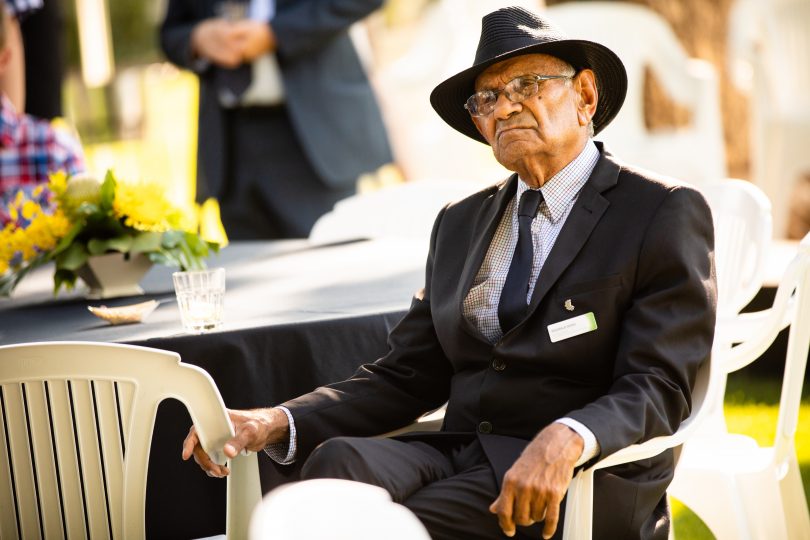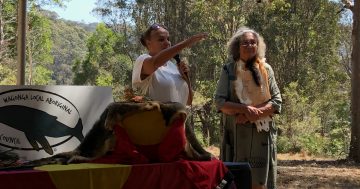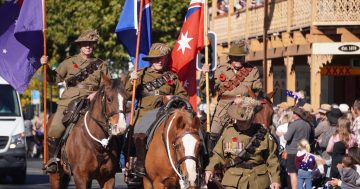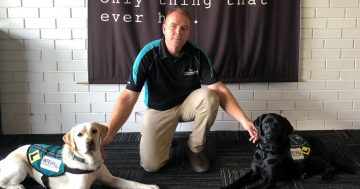
Arabunna elder Reginald Dodd is the SA Senior Australian of the Year. Photo: D Jukic.
The debate about when we mark Australia Day is increasingly characterised by resentment, anger and misunderstanding on all sides. It’s not surprising. January 26, 1788 was a major transition point in our national history. But should the date mark the birth of modern Australia, the day the invasion began, or something more complicated somewhere in the middle?
Amid all the Australia Day hoopla, a much smaller and quieter event is tucked into the calendar. On Friday morning, early, I sat with people from Lake Eyre and Arnhem Land, from Darwin and Melbourne at a Reconciliation Australia breakfast. Among them were the eight indigenous Australian of the Year nominees.
Reginald Dodd from Arabunna country in South Australia, who worked his way through native title legislation with the help of a Roget’s Thesaurus and co-authored a law course with RMIT was there. Maningrida-born Danzal Baker, or Baker Boy, whose rap music brought Yolgnu Matha language to a national audience. And AFL legend Michael Long, whose Long Walk from Melbourne to Canberra dramatised the reality of racism and the need for action.
These are outstanding, hardworking Australians. And many Aboriginal people like them are not at all happy about Australia Day and the way we now celebrate it in a flag-waving, lamb-barbecuing, green-and-gold frenzy of patriotism. Aboriginal Australians have strong reasons for feeling that when the white sails loomed over the horizon in 1788, two centuries of dispossession, pain, disease and death also began.
I don’t recall Australia Day being such a big deal 40 years ago or more (the Australian flag’s design wasn’t even finally settled until 1953). I am very wary of throwing a cloak of unquestioning nationalistic fervour over every question about our identity and labelling dissenters as un-Australian. That’s childish, jingoistic nonsense. For a large chunk of our colonial history, many thought of themselves as citizens of the Empire first and foremost, not Australians.
But, but, but…..what other date is there? Isn’t it indisputable that the Australia we know now also began on January 26? That there’s no going back from that first permanent European settlement and everything, good and bad, that flowed from it?
So is there a third way, a middle course? Instead of expecting Aboriginal Australians to simply fall in and celebrate the 26th, I wonder whether we should begin instead on January 25 with a national twilight ceremony that recognises the deep significance of Aboriginal culture.
Such a ceremony would be attended by the national leaders, but led by the Aboriginal community. In celebrating indigenous Australia, it would also focus on the reality of dispossession and the resilience of survival. We would begin our national holiday with a more profound examination of our history than re-enacting the First Fleet’s arrival.
In 2018, I was co-chair, with former ACT politician and Gamilaroi man Chris Bourke, of the advisory committee for the ACT’s inaugural Reconciliation Day public holiday. We learned a lot.
The biggest lesson for me personally was understanding that some Australians are deeply invested in reconciliation, and some are opposed to the process. In the middle, there are vast numbers of ordinary Australians who haven’t really thought about it. They don’t know any Aboriginal people, aren’t connected with reconciliation and may feel uncomfortable or poorly informed.
Our ACT holiday gave many people the chance to have those conversations in their families, with their friends and communities. A national ceremony of recognition might achieve the same goal.
I believe we urgently need a way to open up the reconciliation conversation for all Australians. It’s not up to Aboriginal Australia to take responsibility for it. We’re all in this together because we are all Australians. Can we all grow up enough to mark our national day with sensitivity, nuance and good will? Surely, there is a way to make that happen?
What changes do you think we need to make to Australia Day?
Original Article published by Genevieve Jacobs on The RiotACT.











